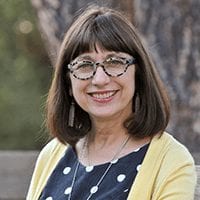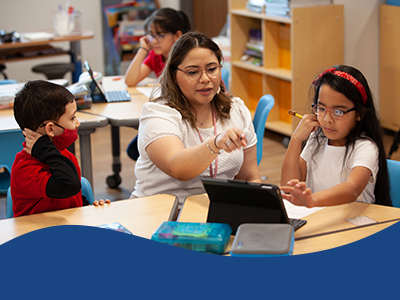Join live or receive a link to the recording and earn a CE certificate

- This event has passed.
Reading and Dyslexia in a Digital World: The Perspective of a Reading Warrior
Tuesday, April 6, 2021 @ 3:00 pm - 4:00 pm EDT

Presented by Dr. Maryanne Wolf, Director of the Center for Dyslexia, Diverse Learners, and Social Justice, UCLA Graduate School of Education and Information Studies
Moderated by Barbara Pape, Director of Policy and Communications, Learner Variability Project, Digital Promise
Sponsored by Digital Promise
Closed captioning will be added to the recording within 2 weeks of the live presentation.
Get a CE Certificate for this edWebinar Learn more
“We were never born to read” is the opening of Dr. Maryanne Wolf’s much-lauded book, Proust and the Squid: The Story and Science of the Reading Brain. In this edWebinar, Dr. Wolf addresses how the human brain has evolved over time to make sense of words on a page, weaving a tapestry of research from neuroscience, linguistics, and cognitive psychology. She delves into dyslexia, what it is, whether we can predict it before a child fails to learn to read, what the role of empathy is, and how we can use our knowledge of the reading brain and dyslexia to teach all readers. Dr. Wolf also discusses her research on how a digital culture is changing who we are as readers.
In this recorded edWebinar, understand:
- How research on the reading brain enhances and expands the teaching of reading
- That our knowledge about dyslexia has benefits for all readers
- That the study of deep reading has implications for the development of critical thought and empathy
- That our ability to help foster proficient readers has direct implications for social justice and democracy
This recorded edWebinar will be of interest to teachers, librarians, reading specialists, and school and district leaders of all grade levels.

Dr. Maryanne Wolf is a scholar, teacher, and advocate for children and literacy around the world. She is the director of the Center for Dyslexia, Diverse Learners, and Social Justice at the UCLA Graduate School of Education and Information Studies and the former John DiBiaggio Professor of Citizenship and Public Service at Tufts University. She has authored over 170 scientific publications including, Proust and the Squid: The Story and Science of the Reading Brain (15 translations; HarperCollins, 2007); Tales of Literacy for the 21st Century (Oxford University Press, 2016); and Reader, Come Home: The Reading Brain in a Digital World (HarperCollins, 2018). She has received multiple awards for her contributions to the science of reading and dyslexia research, and the Walter Ong Award for her work on the effects of different mediums on the intellectual development of the species. Most recently, she was elected a member of the Pontifical Academy of Science.

Barbara Pape is the policy and communications director for the Learner Variability Project at Digital Promise. She has 20 years’ experience in strategic communications, writing, and policy analysis, primarily in education. Previously, she served as the executive producer of the award-winning Teaching & Learning conference, sponsored by the National Board for Professional Teaching Standards, where she developed content and oversaw outreach and communications. As a writer, she has written for numerous publications, including Harvard University, the National Education Goals Panel (U.S. Department of Education), and Parents magazine. Barbara also served as editor and publisher of the first electronically delivered education newsletter, the Daily Report Card. She served on the Advisory Board of the Kennedy Center’s Intersection of Arts Education and Special Education Committee, serves as a judge for the Milken-Penn Graduate School of Education Business Plan competition, and is on the Boards at the Education Writers Association and Potentia. She earned an Ed.M. at Harvard University’s Graduate School of Education and launched her career as a middle school language arts teacher.
Closed captioning will be added to the recording within 2 weeks of the live presentation.
Join the Personalize Learning for Learner Variability community to network with educators, participate in online discussions, receive invitations to upcoming edWebinars, and view recordings of previous programs to earn CE certificates.




